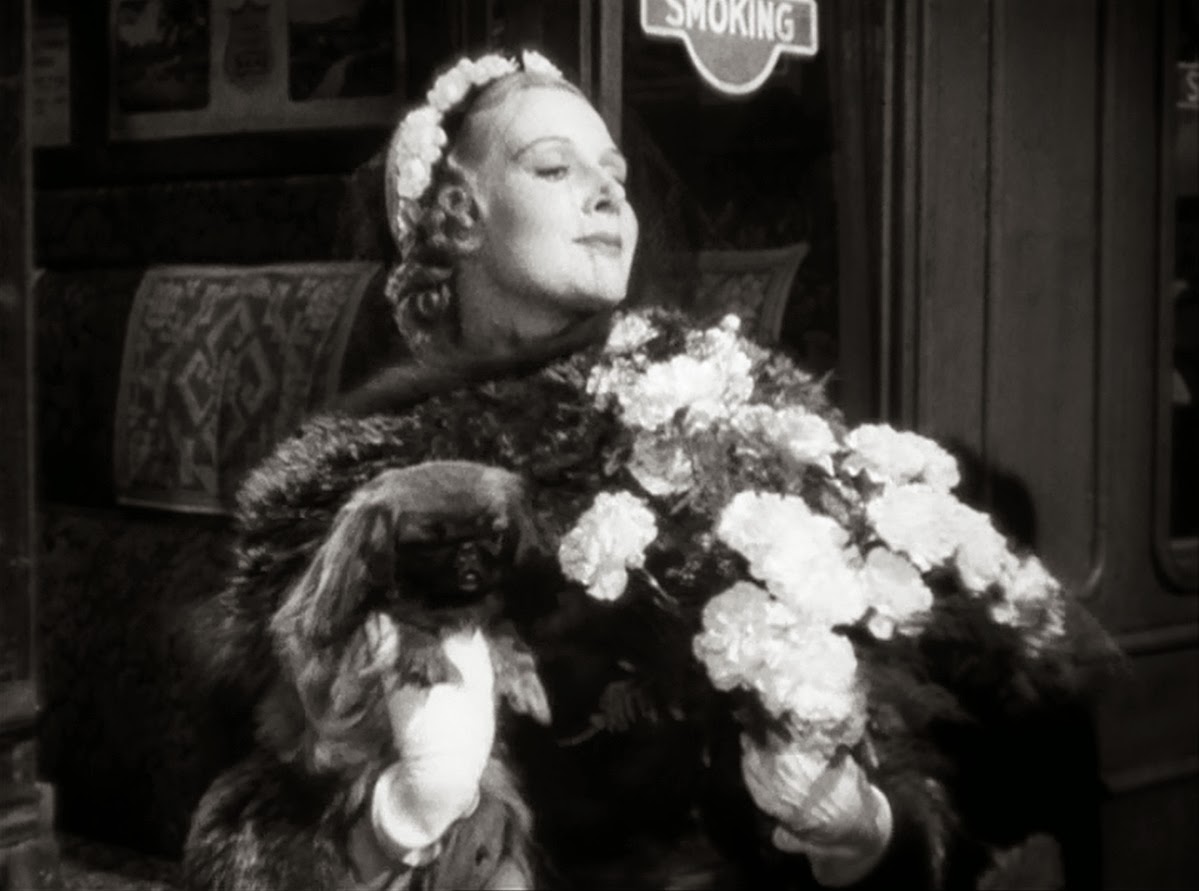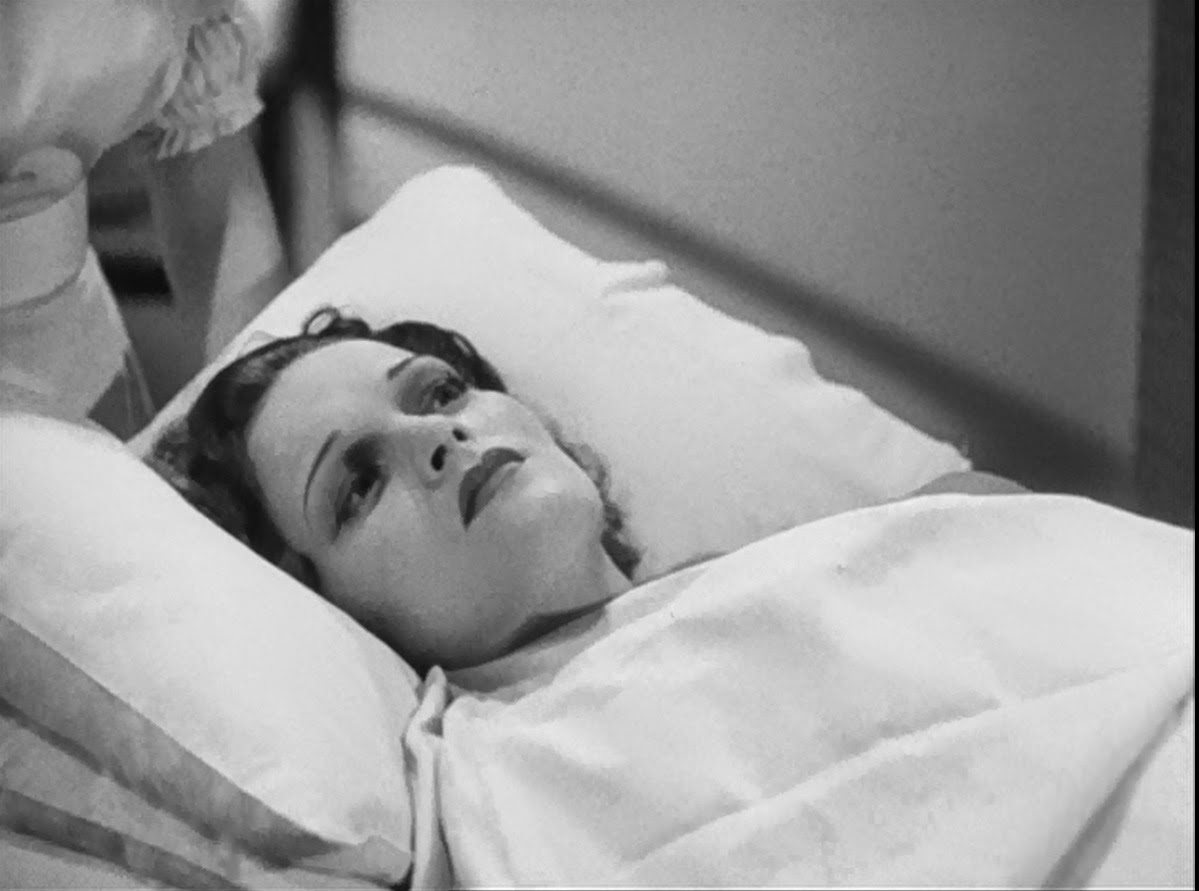Dance Hall (1950)
Charles Crichton’s often-overlooked tale of the importance
of dancing in working class London is a film that deserves more recognition
than it has ever received. Released in 1950, Dance Hall was never going to get wide recognition since it came
out of Ealing Studios in the period that the Sir Michael Balcon and his team
were turning out a list of genuine classics. With the subsequent public
perception of Ealing as being the home of dark or twee comedies, dramas such as
Dance Hall didn’t seem to fit into
the story of the studio’s successes. With the BFI’s 2012 Ealing Light and Dark series (and its accompanying book), re-releases by Studio Canal and
Network DVD’s wonderful Ealing Rarities series, it is now possible to re-appraise films such
as Dance Hall and many other films that might otherwise be forgotten.
The film is ostensibly the fun story of four factory
workers, Eve (Natasha Parry) ...
 |
| Natasha Parry |
Mary (Jane Hylton) ...
 |
| Jane Hylton |
Carole (Diana Dors) and Georgie (Petula Clarke)...
 |
| Diana Dors (left) and Petula Clarke |
... and their nights out at the local Palais
de Danse. The frivolous image is cemented by the film’s marketing materials
which focused on the four glamorous girls and included Diana Dors flashing her
stocking tops (an image that didn't actually appear in the film).
However, against a backdrop of a dance competition, the
story actually focuses on the relationship between Eve and her boyfriend Phil
(Donald Houston).
 |
| Donald Houston |
With Phil more interested in aviation engineering than
dancing, Eve is thrown into the path of Alec (Bonar Colleano), a rather shady
American – the type that manages to acquire boxes of kippers, in the midst of
rationing, and disposes of them with the same casual air that he displays when
discarding girlfriends – who one imagines to be one of those American
servicemen who arrived in wartime London only to find they were more interested
in enjoying the high-life rather than fighting a war.
 |
| Natasha Parry & Bonar Colleano |
The story of the love triangle between Eve, Phil and Alec ...
 |
| Bonar Colleano, Natasha Parry & Donald Houston |
...
could be read in a number of ways:
The arrival of Alec, and his courting of Eve, is an allegory
for how America challenged, then usurped, the UK in world affairs.
Or as a reflection of the way that US servicemen had won the
hearts of British women during the war years.
However, whilst it might be easy (lazy, even) to look at this
story of female factory workers from a feminist perspective, one might rather
concentrate on Phil, taking him as the central character rather than any of the
women. Donald Houston plays a man struggling to deal with a changing world.
At times he plays it dark and brooding, more James Dean than the upper class - often comic - characters he tended to play later in his career.
 |
| Donald Houston |
Phil’s a man living in a society that offers increasing opportunities in education
and prospects for the young working class man. He’s an aviation engineer, a
young man working in a growing industry who can see a way out of the dark old
Victorian tenement flats of central London. In a scene where he travels into
the countryside to watch gliders flying above the open countryside, we are
shown a man who wants to move beyond the accepted confines of society. He’s a
working man of the post-war, forward looking, Attlee years. He doesn’t feel
constrained by the old class boundaries, instead he’s of the generation that
fought for freedom of others with the expectation that it would bring equality
for his own class. Indeed, the working class boy progressing through life was
an apt role for Houston: a native of Tonypandy in south Wales, he had briefly
worked as a coal miner and had served as a rear gunner in the RAF before
becoming an actor.
Interestingly, Houston wears an RAF issue Irvin flight
jacket in Dance Hall, raising the
question of whether it was actually the jacket he had worn during his wartime
service:
 |
| Donald Houston |
And yet Phil is also of the generation who are forced to
accept rapid change: he struggles to deal with independence of spirit shown by
Eve after years of working in a factory. Whilst she feels bored and constrained
by life as a housewife after the freedom of the factory years. Phil grudgingly
accepts Eve’s earlier relationship with Alec: the intimation is that she slept
with Alec, but Phil chooses to forget this in order to move forward with his
life. In this, the war has – either directly or indirectly - given Phil the
opportunity to move forward in is life and given Eve the freedom to do a job
that might otherwise by done by a man. The clash between these two parallel
strands of society – both moving forward on the same trajectory, along the same
path – is at the heart of the film. And Bonar Colleano’s character, Alec, is
there to provide a springboard for the conflict.
 |
| Natasha Parry |
If one was to suggest the filmmakers had a
political message to tell the audience, it might be said that Phil (the working
class engineer, hoping to better himself) represents post-war, forward
thinking, democratic socialism. His work ethic offers stability for the future.
Whilst the opportunistic Alec (making money, here and there, dealing in black
market kippers etc) represents the chaos of capitalism …
… or maybe the filmmakers just wanted us to see young
Londoners out-on-the-town, enjoying themselves?
The film’s social issues can also be viewed in parallel with
those examined in Ealing’s Cage of Gold,
also released in 1950. In that film James Donald plays a doctor torn between
joining the newly established National Health Service or going into private
practice to make his fortune. The doctor is, like Houston’s character, part of
the post-war breed who are building a new society. And both men have the
relationship with their girlfriend (Jean Simmonds in Cage of Gold and Natasha Parry in Dance Hall) threatened by a smooth talking, unscrupulous man (David
Farrar in Cage of Gold and Bonar
Colleano in Dance Hall).
Whilst Cage of Gold
is better known and more respected, Dance
Hall remains an important part of Ealing’s socially conscious period,
during which the studios helped reflect how much Britain was changing and lent
its support for the new society that was being built.Also appearing:
 |
| Bonar Colleano with Kay Kendall |
 |
| Bonar Colleano with Eunice Gayson |
 |
| Diana Dors with three of her suitors: James Carney, Harold Goodwin and Thomas Heathcote |
 |
| Diana Dors with another admirer, Harry Fowler |
 |
| Gladys Henson & Fred Johnson as Georgie's parents |
 |
| Michael Trubshawe |
 |
| Sydney Tafler as the dance hall manager. Behind him are Ted Heath and his orchestra |
 |
| Geraldo (Gerald Bright) as himself |
 |
| Hy Hazell as herself |
 |
| James Carney |
 |
| Susan Shaw & Earl Cameron in Pool of London |
Whilst this tie worn by Bonar Colleano ...
... was worn by Dirk Bogarde in The Blue Lamp.





















































